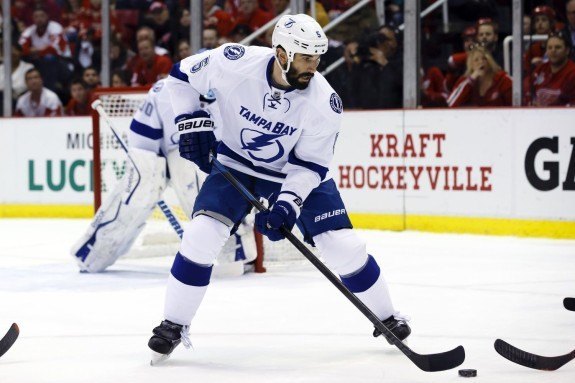Predictions are hardly ever perfect. But they are useful nonetheless. In advanced statistics, PDO is used as a predictor of future success. It’s fairly simple to understand as well.
[Check out the rest of our Hockey 101 and 201 series]
The PDO Equation

PDO is usually a simple number. It is the sum of a team’s shooting percentage and the team’s save percentage. Those numbers are attributed to a single player by only taking into account shots where that player is on the ice. For instance, if a player is in a game where he is on the ice for no goals at all (meaning 0% shooting for his team while he’s on the ice and 100% save percentage for his goalie) his PDO would be 100.
Typically, a PDO over 100 is considered a good player, while under is obviously not. Let’s do some math on some real life examples. Take Chris Kreider, for example. With a PDO of 104.62, the Rangers forward was definitely a positive player last season. But how does he get those numbers?
Kreider’s shooting percentage was 9.15, but that is not what is taken into consideration. In fact, his team’s shooting percentage is higher. At 9.37, the Rangers actually connected on their shots more than he did personally. His goalie saved 95.25% of shots while he was on the ice. The math, again, is very simple:
95.25+9.37=104.62
What Does It Mean?

A lot of controversy involves PDO. Many people think PDO isn’t a good stat at all. Others consider it more useful as a team metric. The reason behind this is due to the wildcard of the goalie. No team is going to prevent opponents from shooting anything on goal all season. The goalie will have to make saves.
If you look at the top PDO players from last season, you might notice a trend. Their goalies are elite. Carey Price, Henrik Lundqvist, and Tuukka Rask definitely bring a positive boost to PDO numbers. It is no coincidence that the top ten PDO players are from teams with brick walls behind them.
However, it is still important to score. A player cannot earn a PDO over 100 without also scoring himself. It is noteworthy that the Devils’ Cory Schneider was fifth in save percentage on the year, however, no Devil comes close to the top 30 in PDO. That is because the Devils struggled mightily to put the puck in their opponent’s net.